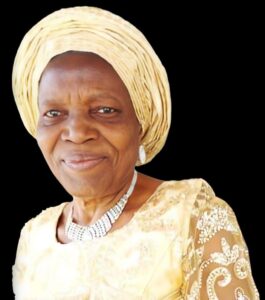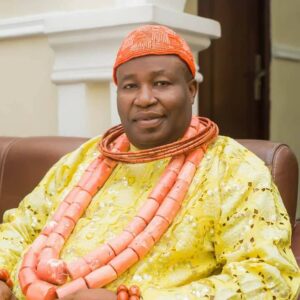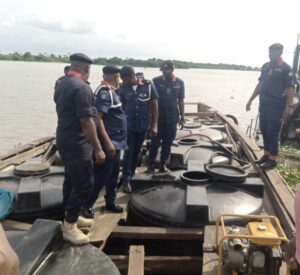IJAW GROUP PARTNERS UNITED NATIONS TO FIGHT ABUSE OF NARCOTIC DRUGS
FELIX JEREMIAH
Besides oil related activities in the oil rich Niger Delta region hich it’s inhabitants have continued to express worries that it has degraded the environment and it’s People in no small manner, another area of concern has been the prevalence of drugs of various dimensions.
The use of narcotic drugs and it’s negative effects on the People of most riverine Communities in the oil rich region has been a thing of great concern to the Ijaw Visionary Movement (IVM).
This informed the Movement’s determination to take the anti drug abuse Campaigns to the door steps of the United Nations for assistance on ways to fight the canker worm that is gradually eating deep into the fabrics of youths, women and men in the riverine Communities.
The Campaign gave birth to the partnership between the Ijaw Visionary Movement and the United Nations to brain storm on ways not only to fight it but to nip it in the bud.
This informed a one day workshop that drew experts from far and near to Yenagoa the Bayelsa State Capital recently which looked into the bad, the good and the ugly effects of narcotic drugs.
The experts came from the United Nations, the Nigeria Drug and Law Enforcement Agency and the State Ministry of Health to sensitize on all facets of Narcotic drugs.
In his opening remarks, Mr. Easter Owei, President Ijaw Visionary Movement, noted that the IVM was formed to exchange and formulate ideas that can develop the Niger Delta region.
Owei who gave reasons behind the Movement’s desire to embark on Campaign against nacotic drugs disclosed that after critical investigations, it was discovered that the use of nacotic drugs in most of the remote riverine Communties, if not checked, may lead to the emergence of People that might not be useful to the Society in the nearest future.
This informed “Today’s programme on drug abuse , narcotic drugs – the negative effects in our Communties”, said Owei in his remarks.
According to him, the programme is to “ensure that our People are checked”, stressing that hard drugs have been a major destructive substance that is being consumed by our youths.
The IVM President advised workshop attendees to be prepared to spread the message to all nocks and crannies of the state and the Niger Delta region in general.
“Attendees should educate those not present in this workshop so that the message on how to stop drug abuse could be taken to our remote Communities where it is rampant”, he added.
In her lecture, titled : ‘Drug Demand Reduction’, Ms. Harsheth Kaur Virk, Project Officer, United Nation Office on drugs and crime, looked at the use of Nacotic drugs from three perspectives including Intoxication, Dependent and Regular or excessive use could also cause a crunitic disorder .
Nacotic drug abuse, she added, could cause a multi factional disorder that often takes the course of relapsing and remixing .
“Drug user don’t get the attendance needed, Leads to family breakdown .Drug addiction often cause other health problems” said Virk noting that the poor are venerable to health disorders.
She says the aims and objectives of International Drug Conventions are to develop ways of controlling drug abuse in societies.
She lamented that out of 27% of drug users only 7% get access to treatment.
Major solutions to drug abuse is to frequently educate users through workshops and seminars.
One major importance of drug prevention is to contribute positively to healthier society. Drug prevention, she added, is social as you are strengthening family bonds, Saying “socialization is key to
prevention.”
Drug dependence, according to Virk, is a multi factional disorder that often takes the course of a relapsing and remitting chronic disorder as it is also Characterized by strong desire or compulsion
for drug use, impaired control over drug use, tolerance , withdrawal symptoms, neglect of other interests, persisting drug use despite harmful consequences.
Virk says Drug dependence is often not recognized as a multi factional health disorder but only a moral failure which could result into a social problem, into a criminal justice problem, could result into only a pharmacological problem and only a self -acquired disease based on free will considered not a problem
“Drug use is not the result of an informed free choice but the result of the interaction of vulnerabilities, risk and protective factors .Drug dependence is as much a disorder of the brain as any other mental disorder”
On Mechanism of the relationship between poverty and mental health problems, Virk says it could result into Low level of education , the experience of insecurity, hopelessness, rapid social change , risks
of violence, physical ill health and the greater vulnerability of the poor to common mental disorder.
Rev. Azini Matthias, of the Ministry of Health Bayelsa State, delved on the topic ‘Mental Health, viewed Drug abuse from the perspective of different authorities including cultural, generalization and specific specialization concept.
Describing drug abuse as the use, usually by self-administration of any drug in a manner disapproved by medical or social norms of a given culture, Azini says the definitions are generalizations which cuts
across all fields of medicine and societal norms, ” more so, when we
consider the definition of drug”.
“A drug is a chemical substance, natural or synthetic, which has an action on body metabolism. This action may be
According to him, the World Health Organization defined drug addiction as “a behavioural pattern of drug use characterized by overwhelming involvement with the use of a drug, compulsive drug-seeking behaviour, and a high tendency to relapse after withdrawal”.
Dr. Chia Francis of the NDLEA, in his presentation titled: Drug Abuse and Crime in Nigeria, decried that the problem of drug abuse and crime in Nigeria is such that many Nigerians have metaphorically described crime as one of the fastest growing business in the Country.This, accorodmg to him, constitutes one of the major problems facing the a nation today.
He pointed out that crimes such as armed robbery, rape, kidnapping, and other crimes are mostly associated with the use of drugs.
He further pointed out that while the rate of crime in Nigeria is rising automatically, there is also a constant rising level of drug abuse in the Country.
According to him, the relationship between illicit drug use and criminal activity has been repeatedly demonstrated over the past few decades and that there is considerable evidence to suggest that drug
use is associated with criminal behavior.
He said drug users will engage in criminal activities more than non drug abusers.Moneys generated from crime are used to buy drugs . Drug addicts are also enslaved as they are unable to control their use of the drug and spend so much money on drugs that they become incapable of supporting their drug habit by working at regular legitimate jobs. Consequently, they must engage in crime to raise money to support their drug habits, he added.



